Department History
Northwestern University Department of Political Science 1915/16 - 2015/16
(For an overview of Northwestern University History, click here.)
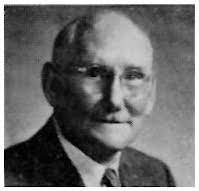 In 1915, the Department of Political Science is formed. Professor Norman Dwight Harris, a diplomatic historian, was the first chair of the department. The department was formed by splitting off programs in diplomacy and government from the History Department and “adding a number of attractive new courses and engaging an additional instructor.” In addition to Professor Harris, the faculty consisted of P. Orman Ray (American politics) and Benjamin Wallace (municipal government). These three faculty members offered an undergraduate curriculum consisting of 13 courses.
In 1915, the Department of Political Science is formed. Professor Norman Dwight Harris, a diplomatic historian, was the first chair of the department. The department was formed by splitting off programs in diplomacy and government from the History Department and “adding a number of attractive new courses and engaging an additional instructor.” In addition to Professor Harris, the faculty consisted of P. Orman Ray (American politics) and Benjamin Wallace (municipal government). These three faculty members offered an undergraduate curriculum consisting of 13 courses.
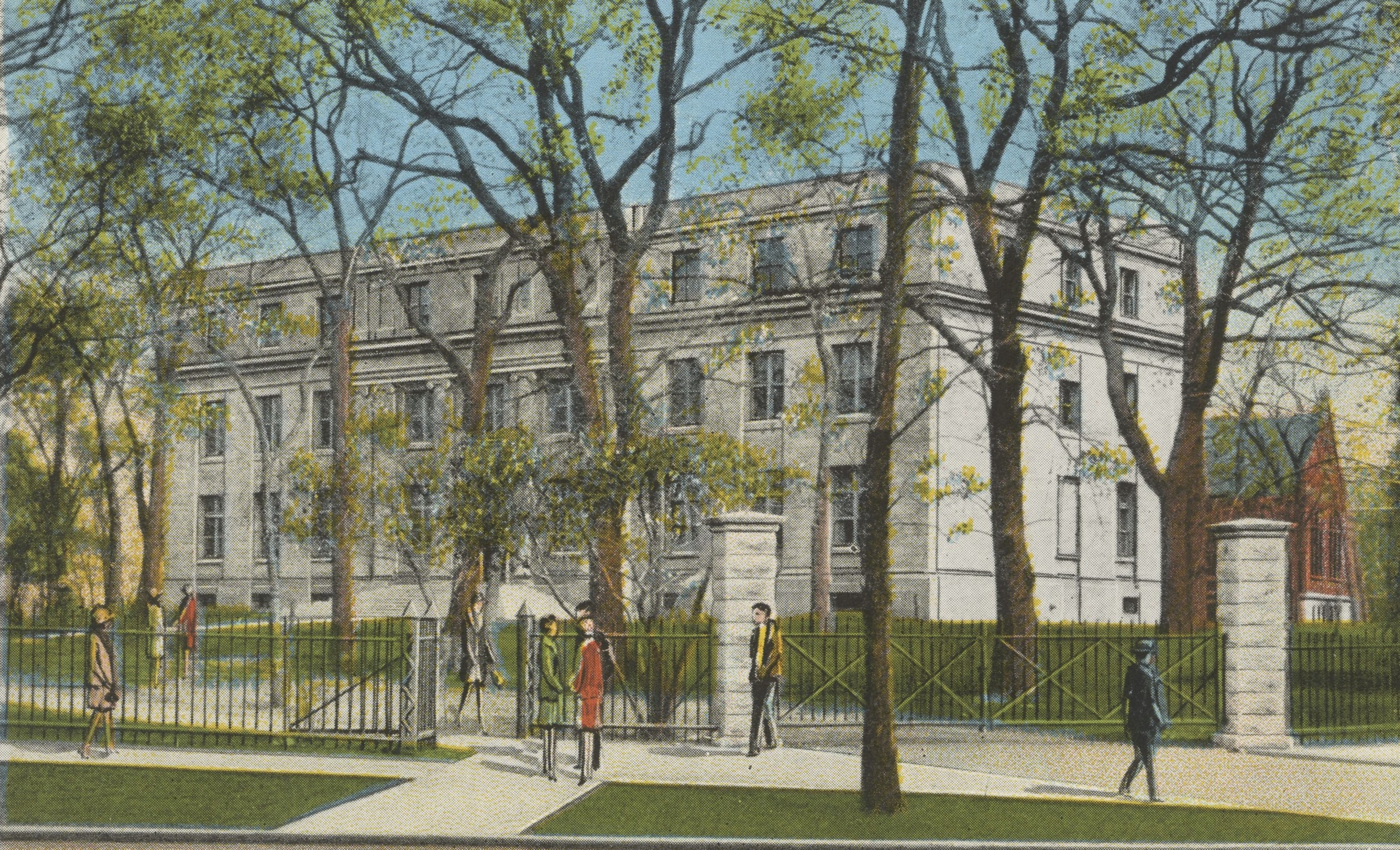
The department’s first home is Harris Hall, a limestone neo-classical building. The building was named for Norman Wait Harris (1846-1916), a prominent Chicago Banker, philanthropist, trustee, and benefactor whose gift to the University stipulated the establishment of the Department.
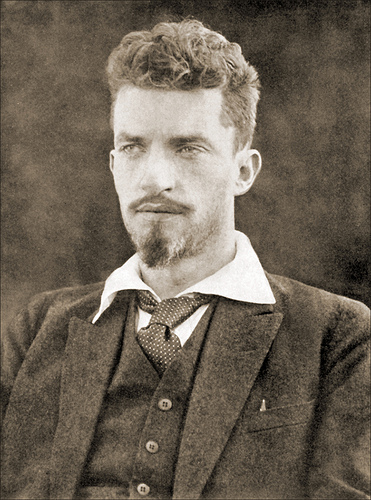 In 1929, William Montgomery McGovern Joins the faculty. Described as “a brilliant teacher, noted scholar, and an authentic adventurer, he was the prototypic Indiana Jones.” McGovern spoke several languages and wrote a book on colloquial Japanese. In the steamship era, he traveled to Tibet, China, Japan, Peru, and the Amazon River - in addition to the usual European countries. McGovern taught comparative politics and political theory, often to an overflow crowd of 300 students fascinated by his insights and anecdotes. In the early 1950s, the departments sets out to develop a major “ new approach to fundamental problems [of politics] and the philosophy of government.” Weinberg Dean Simeon Leland aided these efforts, writing: “I believe that if an experiment of the kind indicated were to be carried on it would give a stimulus to the reorganization of Political Science throughout the country.” A $90,000 Carnegie Grant funds a major revamp of the curriculum and a conference on political science education and training.
In 1929, William Montgomery McGovern Joins the faculty. Described as “a brilliant teacher, noted scholar, and an authentic adventurer, he was the prototypic Indiana Jones.” McGovern spoke several languages and wrote a book on colloquial Japanese. In the steamship era, he traveled to Tibet, China, Japan, Peru, and the Amazon River - in addition to the usual European countries. McGovern taught comparative politics and political theory, often to an overflow crowd of 300 students fascinated by his insights and anecdotes. In the early 1950s, the departments sets out to develop a major “ new approach to fundamental problems [of politics] and the philosophy of government.” Weinberg Dean Simeon Leland aided these efforts, writing: “I believe that if an experiment of the kind indicated were to be carried on it would give a stimulus to the reorganization of Political Science throughout the country.” A $90,000 Carnegie Grant funds a major revamp of the curriculum and a conference on political science education and training.
In the early and mid-1950s, the Department is part of the vanguard behaviorist and comparative politics movement, hosting a series of conferences aimed at developing new approaches to study politics. At the 1952 Social Science Research Council Conference, the Committee on Comparative Politics is created and is later called “the birthplace of comparative politics.” The 1955 conference on “Political Theory and the Study of Politics” advances the study of politics using behavioral methods and is an event of national significance. Read an APSR report on the event here.
In 1957 and 1958, graduate programs are introduced in the following areas: Comparative politics; International Relations; Community Political Analysis; and Political Behavior, Law and Politics. The long-term Study of American Ideology Project begins by incorporating undergraduate students as research subjects.
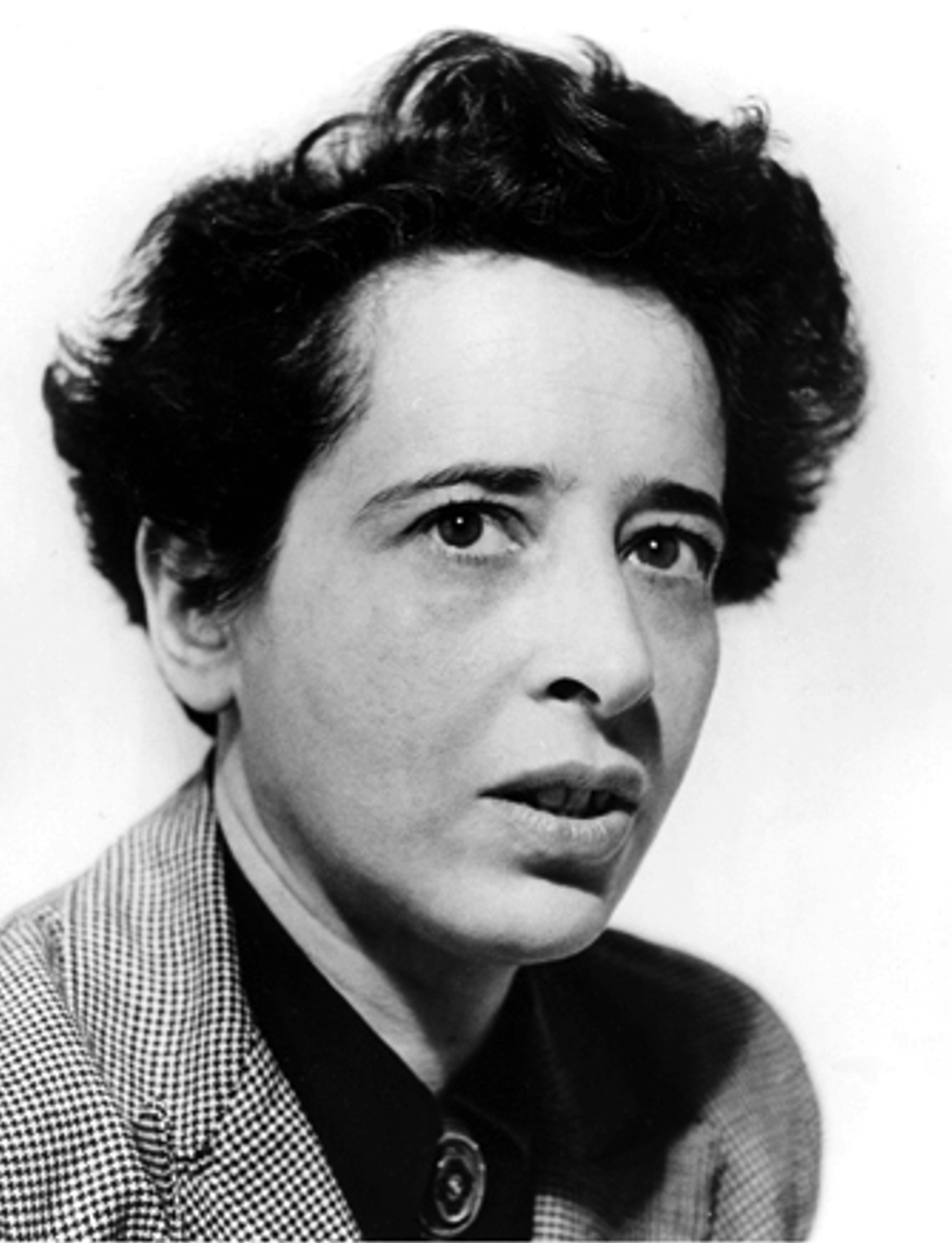 In 1961 Hannah Arendt teaches two courses at Northwestern as a visiting Concora Professor. Originally scheduled to be visiting in Spring Quarter 1961, she differed because she was given an opportunity to observe the Eichmann trial in Israel - about which she subsequently published her accounts in The New Yorker and the book Eichmann in Jerusalem: A Report on the Banality of Evil. The two Winter Quarter courses were entitled On Revolution and Origins of Theory.
In 1961 Hannah Arendt teaches two courses at Northwestern as a visiting Concora Professor. Originally scheduled to be visiting in Spring Quarter 1961, she differed because she was given an opportunity to observe the Eichmann trial in Israel - about which she subsequently published her accounts in The New Yorker and the book Eichmann in Jerusalem: A Report on the Banality of Evil. The two Winter Quarter courses were entitled On Revolution and Origins of Theory.
In 1963, Northwestern emerged as the 13th top-ranked department in a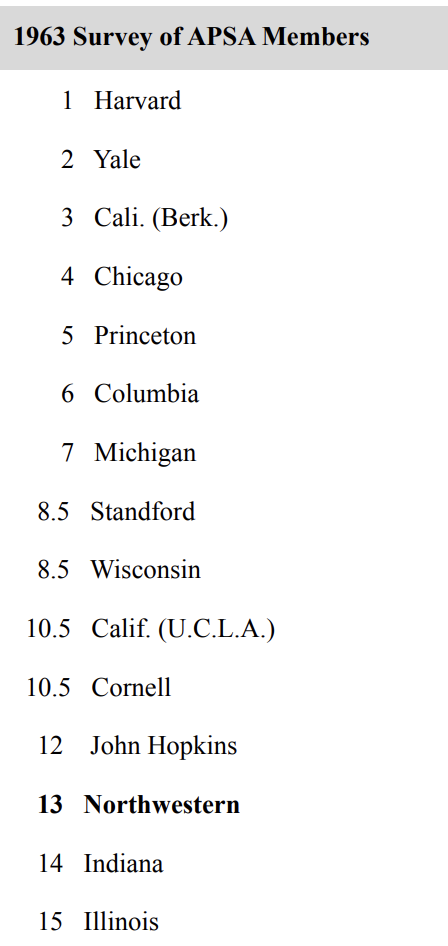
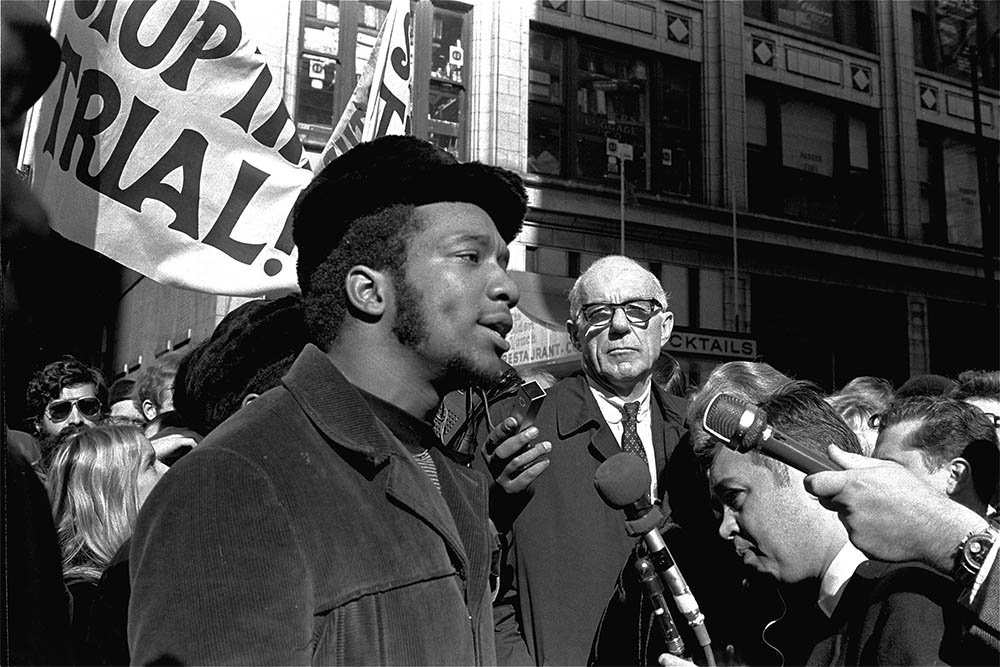 In 1970, unrest on campus grows in the wake of the killings at Kent State. Protesters barricade Sheridan Road, closing the street. Concerned that some students had generous financial support while others do not, the graduate students in political science organized themselves into a “commune” to share resources. All students pool their stipends and share the funds while guaranteeing the faculty that all needs for teaching assistants would be met collectively.
In 1970, unrest on campus grows in the wake of the killings at Kent State. Protesters barricade Sheridan Road, closing the street. Concerned that some students had generous financial support while others do not, the graduate students in political science organized themselves into a “commune” to share resources. All students pool their stipends and share the funds while guaranteeing the faculty that all needs for teaching assistants would be met collectively.
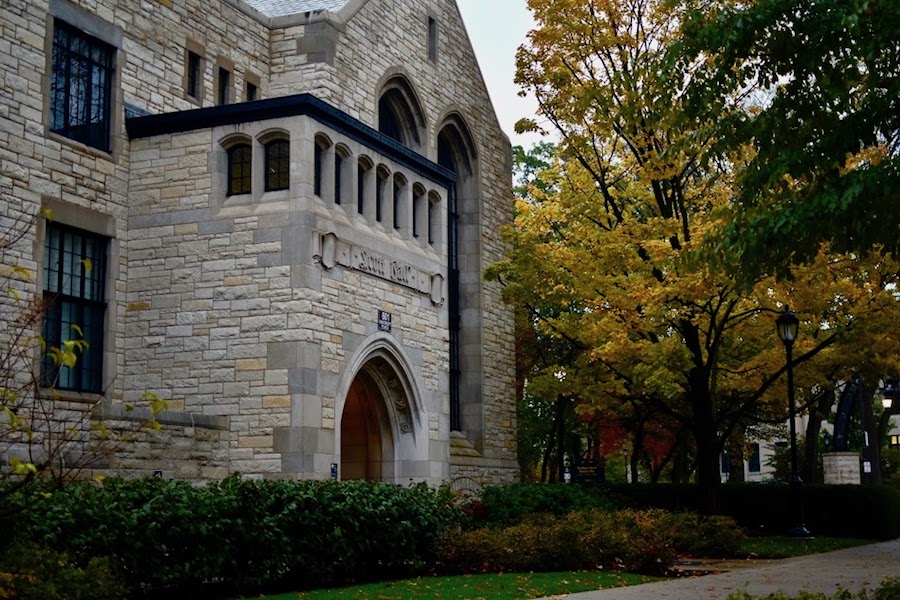 In 1974 the Department moves to its current home, Scott Hall, a gothic revival gem designed by the same architect as the Deering Library and once home of a popular University Coffeehouse.
In 1974 the Department moves to its current home, Scott Hall, a gothic revival gem designed by the same architect as the Deering Library and once home of a popular University Coffeehouse.
In 1982, political science students and faculty organize a chapter of Pi Sigma Alpha and are granted a charter by the national organization. This political science honors society brings together students and faculty interested in the study of government and politics. We are enrolled in the the Nu Mu Chapter of Pi Sigma Alpha.
In fall 2015, the Department began the academic year with 37 full-time faculty members, 89 graduate students, and over 500 undergraduate majors and minors.
The Department celebrated its centennial on Friday, April 8, 2016 at the annual American Political Science Association conference at the Palmer House Hilton in Chicago, IL.
